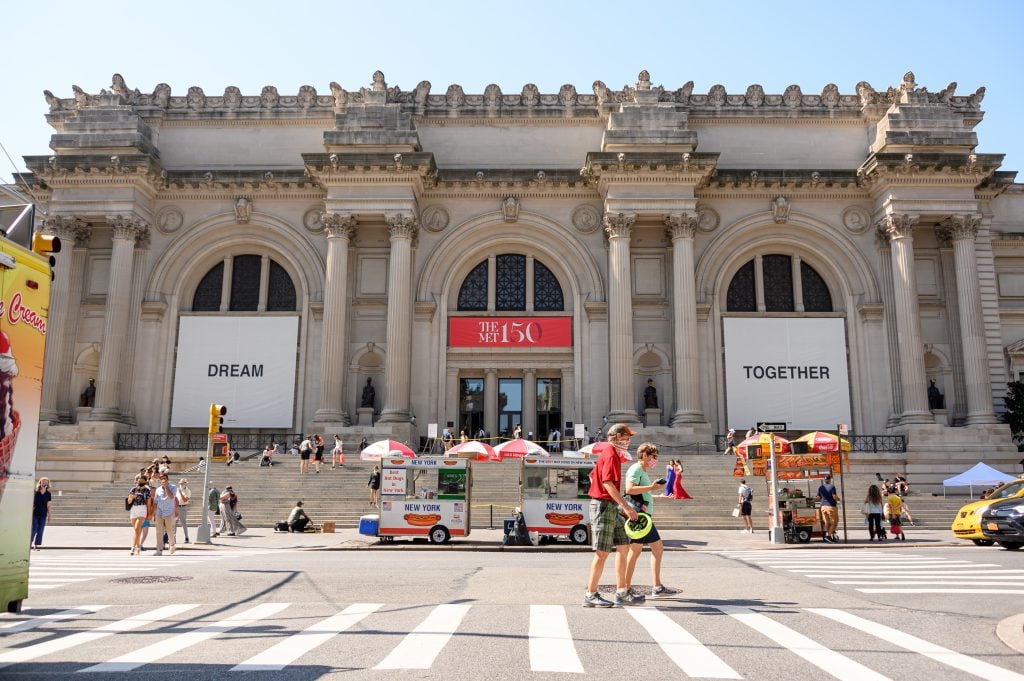Art World
In an Unusual Move, the Metropolitan Museum of Art Will Use Funds From Deaccessioned Artworks to Pay Staff Salaries
Critics warn that donors might be discouraged from giving artworks if they fear they will be sold off when rainy days come.

Critics warn that donors might be discouraged from giving artworks if they fear they will be sold off when rainy days come.

The board of the Metropolitan Museum of Art, the largest art museum in the US, has made a major, if temporary, policy change, resolving to direct funds from sold artworks to caring for its remaining collection, including paying the salaries of those who routinely oversee and care for artworks, according to blogger Lee Rosenbaum.
A museum spokesperson confirmed the change to Artnet News.
The institution faces a $150 million pandemic-related budget shortfall, and foresees worse gaps in coming years.
Museums routinely sell duplicate or substandard works. The Met, in recent years, has averaged about $13 million a year from such sales. But stringent guidelines from the industry-leading Association of Art Museum Directors (AAMD) typically forbid using such funds for any purpose except buying more art. (Another organization, the American Alliance of Museums, does allow its members to use those funds for collections care.)
With museums taking major hits to revenue during the pandemic, AAMD last April instituted a two-year change to its policies, starting from the beginning of lockdowns in the U.S. twelve months ago, allowing museums to use such funds for collections care.
Even with a $3.3 billion endowment and having slashed many costs, the Met says its budgets are stretched thin.
When the Met revealed last month that it might take advantage of the modified policies, experts in the field raised a hue and cry.
Maxwell Anderson, former head of several museums, including New York’s Whitney Museum of American Art and the Dallas Museum of Art, called the maneuver “shortsighted.” The Met’s own former director, Thomas Campbell, now head of the Fine Arts Museums of San Francisco, warned in an Instagram post of a “slippery path” for American museums, even likening them to an addict staring at a bag of crack. More soberly, he also wrote an editorial in Apollo magazine, warning that the change would have long-term ramifications for the field.
Critics warn that donors might be discouraged from giving artworks if they fear they will be sold off when rainy days come. Future board members, they say, might be less willing to give generously if the collection could simply be raided, and ask why the Met’s board can’t fix the problem. Some also predicted that museums’ tax-exempt status could be at risk if their holdings were viewed by legislators as fungible assets,
In an interview with Artnet News last month, Met director Max Hollein rebutted some of those arguments, saying that board has been extraordinarily generous, predicting that there will be no temptation to extend the temporary alteration to the rules, and expressing faith that his staff has the situation well in had.
“This is something we can handle professionally,” he said.